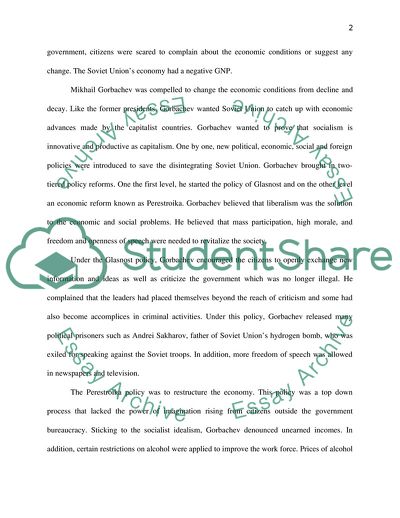Cite this document
(The Cold War between the United States and the Soviet Union Essay Example | Topics and Well Written Essays - 1250 words, n.d.)
The Cold War between the United States and the Soviet Union Essay Example | Topics and Well Written Essays - 1250 words. https://studentshare.org/politics/1737205-collapse-of-communism-and-gorbachev-reforms
The Cold War between the United States and the Soviet Union Essay Example | Topics and Well Written Essays - 1250 words. https://studentshare.org/politics/1737205-collapse-of-communism-and-gorbachev-reforms
(The Cold War Between the United States and the Soviet Union Essay Example | Topics and Well Written Essays - 1250 Words)
The Cold War Between the United States and the Soviet Union Essay Example | Topics and Well Written Essays - 1250 Words. https://studentshare.org/politics/1737205-collapse-of-communism-and-gorbachev-reforms.
The Cold War Between the United States and the Soviet Union Essay Example | Topics and Well Written Essays - 1250 Words. https://studentshare.org/politics/1737205-collapse-of-communism-and-gorbachev-reforms.
“The Cold War Between the United States and the Soviet Union Essay Example | Topics and Well Written Essays - 1250 Words”. https://studentshare.org/politics/1737205-collapse-of-communism-and-gorbachev-reforms.


